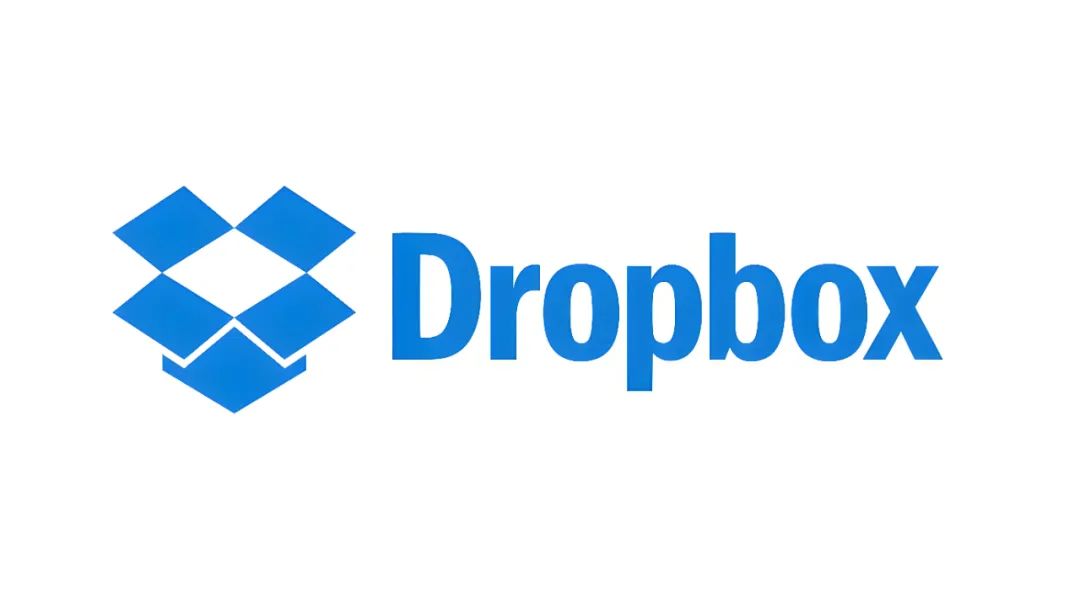Alibaba Cloud's "Sell-off"
![]() 08/08 2024
08/08 2024
![]() 502
502


Alibaba Cloud's frontline is waging an all-out price war, while its cloud storage backend picks up the business of speed limiting.
@TechNewKnow Original
The story of a dragon slayer becoming a dragon in the business world repeats itself periodically, with Alibaba Cloud Storage being the latest protagonist in the cloud storage realm.
Just as Alibaba Cloud showcased its robust cloud service capabilities at the Paris Olympics, Alibaba Cloud Storage, which has gained recognition from individual users in China in recent years, quietly resorted to the old trick of speed limiting in July, introducing new paid benefit packages and boldly stating its intention to monetize.

This benefit package for third-party applications, with a promotional price of $10/month or $110/year, offers additional features and benefits beyond Alibaba Cloud Storage's Super VIP membership. Therefore, users who have already subscribed to Super VIP membership cannot access the benefits within this package.
The primary feature of this package is providing 1TB of high-speed download traffic and optional HD video playback. Without purchasing the third-party benefit package, users' download speeds through third-party applications will be limited, and video playback will only be available in standard definition.
Paid Super VIP users have reported that after the introduction of the third-party benefit package, they are now experiencing speed limits when using players like Infuse, VidHub, Filmly, Alist, etc., to mount Alibaba Cloud Storage, resulting in network lags and download speeds dropping to 0.5-1MB/s, making it difficult to watch HD videos.
It is common for personal cloud storage or download service providers to induce users to purchase memberships by limiting speeds, as seen with Xunlei and Baidu Netdisk. Despite the initial dislike for this practice in the Chinese market accustomed to free internet, the cost of hardware servers is undeniable, and users are gradually developing a habit of paying for services.
Alibaba Cloud Storage's significant backlash from public opinion can be attributed to its promise of "never limiting speeds" when it launched three years ago, a promise that earned it widespread popularity and helped it establish a foothold in a market dominated by Baidu Netdisk. Its decision to backtrack on this promise now begs the question: was it pressured by Alibaba's price war, or has it shed its warm and fuzzy startup image to reveal its true business nature?
Part.1
Cloud Storage Turns Against Alibaba Cloud

Alibaba Cloud Storage was born in 2021, five years after the first cloud storage war ended in 2016. That year, iMedia Research's "2020-2021 China Personal Cloud Storage Industry Survey Report" showed that Baidu Netdisk led with a brand awareness of 81.3%.
In such an oligopolistic market, Alibaba Cloud Storage's confidence stemmed from its parent company, Alibaba Cloud.
At the time, Simon Hu, then President of Alibaba Cloud Intelligence, stated that Alibaba Cloud was not just creating a cloud storage product but a personal cloud, with aspirations beyond a mere cloud storage service. The product lead for Alibaba Cloud Storage, Qi Junyuan, the founder of Teambition, acquired by Alibaba, embodied this vision.
Using enterprise-grade products to serve individual users was more than sufficient, but breaking into the market required a strong foothold. Thus, addressing the pain point of "speed limiting" that plagued all cloud storage users, Alibaba Cloud Storage officially announced at its launch that it would not limit speeds for commercialization, not even for free users.
Even after launching its VIP and Super VIP services a year later, Alibaba Cloud Storage maintained the same upload and download speeds for all users, offering enhanced experiences in areas such as storage space, file transfers, backups, and device logins tailored to heavy users' unique needs.
Simple and direct tactics often yield results. On the day of its official beta launch, Alibaba Cloud Storage surpassed Baidu Netdisk with 304,360 downloads. The next day, it ranked second on the Apple App Store's overall chart, a remarkable achievement considering Baidu Netdisk's dominance.
Dissatisfaction emerged in the third year. In July 2023, The Paper's consumer complaint platform received questions about Alibaba Cloud Storage from Mr. Yu in Chongqing. "I have a gigabit broadband connection at home, and theoretically, the maximum download speed should be close to 100MB/s, but even after purchasing the Super VIP membership, my download speed is only around 10-20MB/s," said Mr. Yu, who confirmed with telecom staff that the broadband connection was not the issue. Alibaba Cloud Storage staff subsequently investigated and reported that there was no speed limiting on Mr. Yu's account.
However, many users reported encountering "current download peak" prompts during peak hours, with download speeds significantly limited, sometimes to as low as 100 KB/s. Access to the "fast download channel" required a Super VIP membership, or a free 3-minute trial.
With the introduction of the third-party application benefit package this year, Alibaba Cloud Storage has received 266 complaints related to speed limiting on Heimao Complaints, a third-party platform for consumer complaints.

Business operations must follow commercial logic, and it's not uncommon for companies to backtrack on verbal commitments in pursuit of profit. But what pressures is Alibaba Cloud Storage facing now, having once boldly promised never to limit speeds?
Part.2
Alibaba Cloud Stretched Thin

Alibaba Cloud Storage's initial confidence in offering free and unlimited speeds stemmed from Alibaba Cloud, but its current dilemma may also be rooted in the same place.
During Alibaba's earnings call in May, CFO Xu Hong made it clear that the company closely monitors return on investment (ROI) and ensures a good ROI for its investments, demonstrating a "high degree of discipline" in its investment strategy. In July, Alibaba's management team reached a consensus to focus on strategy, maintain composure, and understand its strengths and weaknesses.
The primary focus remains on the e-commerce business led by Taobao and Tmall, with a renewed emphasis on GMV growth after the price war with Pinduoduo. Alibaba Cloud, seen as a future core competitiveness, has even abandoned plans for an independent IPO amidst the AI large model wave, choosing instead to continue its internal development. Alibaba CEO Daniel Zhang has stated that reigniting growth in e-commerce and cloud computing is the company's top priority.
At Alibaba's 2024 Strategy Conference on February 29th (Thursday), Liu Weiguang, Senior Vice President of Alibaba Cloud Intelligence Group and President of the Public Cloud Business Unit, announced across-the-board price reductions for cloud products, with an average reduction of over 20% and a maximum reduction of 55%.
The "Crazy Thursday" price war extended overseas as well. On April 8th, Alibaba Cloud announced price reductions across its core cloud products deployed in 13 global regions, covering over 500 product specifications, with an average reduction of 23% and a maximum reduction of 65%.
Alibaba Cloud's aggressive price war aims to emulate BYD in the electric vehicle industry, combining market leadership with economies of scale to generate significant profits. However, recent financial reports show a trend of increased profits without commensurate revenue growth.
From fiscal years 2019 to 2022, Alibaba Cloud's revenue growth rates were 84%, 62%, 50%, and 29%, respectively, declining steadily and even turning negative in Q1 2023. In fiscal year 2024, Alibaba Cloud contributed approximately $14.733 billion in revenue, a mere 3% year-over-year growth. Excluding revenue from Alibaba's consolidated subsidiaries, Alibaba Cloud's revenue has actually declined.
While the price war may help reverse this trend, Alibaba's focus on profit has permeated all levels and divisions of the company. As a smaller business under the Alibaba Cloud umbrella, Alibaba Cloud Storage's need for self-sufficiency is urgent. Introducing various paid models like the third-party benefit package, while perhaps not the most elegant solution, is a necessary step forward given the current circumstances.
Part.3
The Direction of the Second Cloud Storage War

Alibaba Cloud Storage's challenge to Baidu Netdisk three years ago marked the start of the second cloud storage war. Commercial wars often begin with a vague but lucrative signal, but determining the outcome and direction requires exploration by all parties involved.
On March 23, 2018, Dropbox, a US-based personal cloud storage service with 500 million registered users and 11 million paying subscribers, debuted on Nasdaq with a 50.5% increase on its first day of trading. However, Dropbox's latest financial report shows a decline in annual recurring revenue (ARR) for four consecutive quarters, ending Q4 2023 at $2.523 billion. With the industry benchmark struggling, Chinese players must chart their own course.
Dropbox was founded in 2009, around the same time that domestic personal cloud storage services began in China with 115 Netdisk. It wasn't until three years later that giants like Baidu, Tencent, Kingsoft, and 360 flooded the market, engaging in a "Hundred Disk War" fueled by free models and cash subsidies.

Media estimates at the time suggested that storing approximately 6.14 million TB of data in Baidu's Yangquan data center, using 8TBx18 storage servers, would cost roughly $1.96 billion in hardware, plus $250 million in electricity and nearly $400 million in network fees.
The internet giants' silent suffering was ultimately relieved by China's crackdown on pornographic content shared via cloud storage in 2016. With 360 Netdisk announcing the cessation of its personal cloud storage service, the market was left with Baidu Netdisk and Tencent Weiyun, effectively ending the first cloud storage war.
The infrequent usage pattern and spoiled user expectations posed obstacles for Baidu as it attempted to commercialize its cloud storage. After various failed attempts, Baidu settled on the straightforward membership fee model, albeit reluctantly resorting to speed limiting to coerce users into paying.
Baidu Netdisk's market re-education gave rise to new players like Alibaba Cloud Storage, revamped UC Netdisk, and 360 Netdisk, presenting an opportunity for the second cloud storage war. However, if these participants cannot find sustainable long-term solutions beyond speed limiting, they risk remaining subservient to Baidu.
The core challenge for personal cloud storage services, whether relying on external advertising or internal service enhancements, remains addressing the "infrequent usage pattern."
An increasing portion of our daily work, entertainment, and other activities will move to the cloud, making personal cloud storage, with its enhanced privacy, a preferred alternative to public websites. The combined use of Alibaba Cloud Storage and various third-party applications fulfills user needs. The intelligent search and generation capabilities of AI large models pair perfectly with the natural information storage function of cloud storage.
Instead of competing with peers through speed limiting, cloud storage providers should leverage newer technologies to create indispensable and useful service experiences for users. Only then can edge businesses like Alibaba Cloud Storage, nestled within larger ecosystems, grow into formidable standalones.







